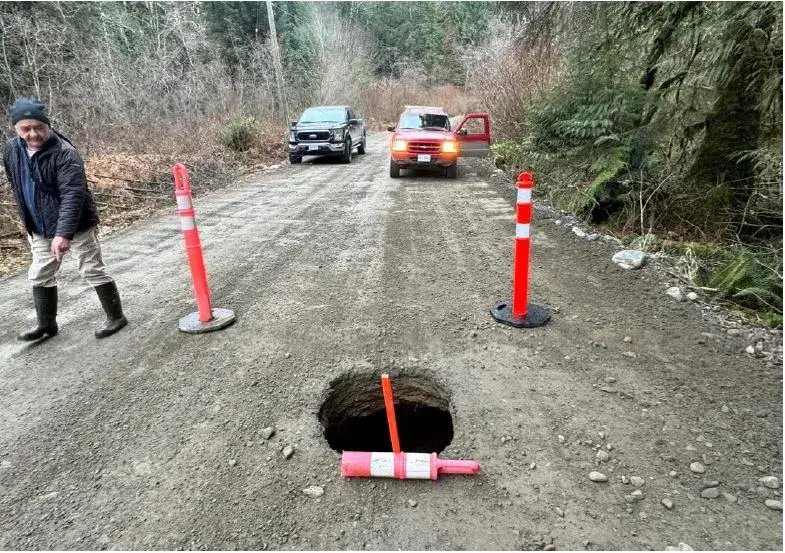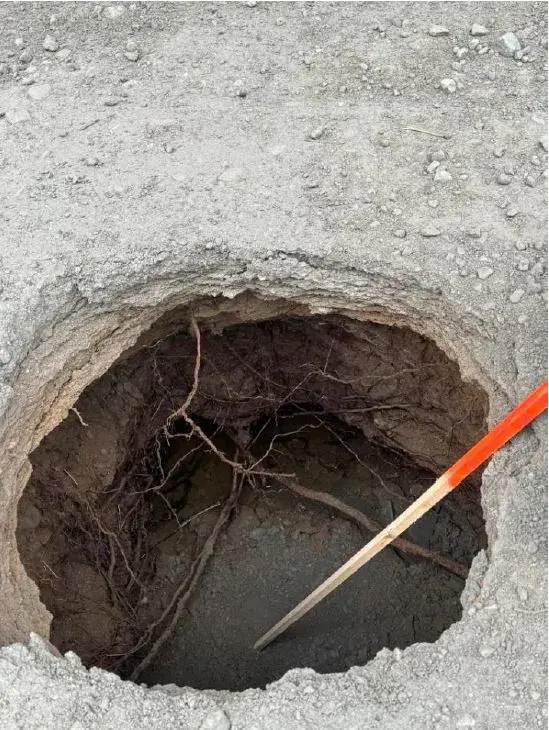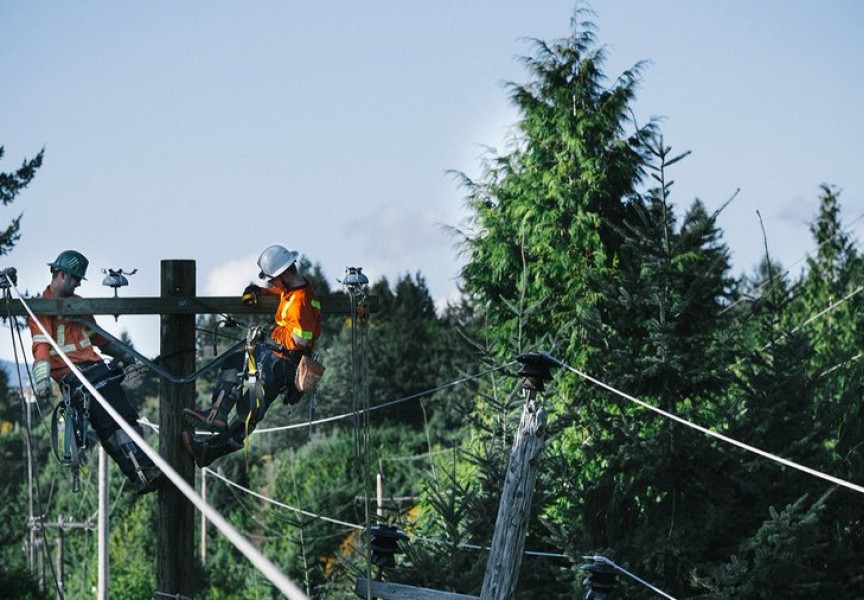On March 24, Ditidaht First Nation issued a warning to motorists of a hole extending five feet wide on Carmanah Mainline near the Nitinaht Lake Hatchery.
As of Sunday, March 24, the site is marked with traffic cones, but the notice issued by the First Nation reads that the hole “necessitates immediate attention” for the dangers that it poses to motorists.
“Responsible authorities for the area are being duly notified,” reads the notice. “The sinkhole demands vigilance from all road users. The gravel roads in the area require cautious navigation, and motorists are urged to exercise extreme care while driving.”
An additional statement released by the Nation on March 26 stated that they expect repairs for the five- foot hole within the next two days.
“It is imperative that all travelers exercise caution and adhere to safety protocols,” the first notice read.
But this isn’t the first hole for Carmanah Mainline this year. In February, an opening three feet wide and four feet deep was discovered along Carmanah Main due to a collapsed culvert near the Ditidaht First Nation’s community at Nitinaht Lake. Luckily, due to the nation's newly hired director of infrastructure, a temporary culvert was installed within hours.
Ditidaht First Nation’s members depend on Carmanah Mainline, part of a series of logging roads extending from Port Alberni through to Duncan. The First Nation calls upon the provincial government to “address road improvements, enhance road safety measures, and establish a routine inspection and maintenance schedules.”
This past summer, when Highway 4 was closed due to the Cameron Bluffs wildfire, traffic was rerouted along Bamfield Road to Carmanah Mainline, where residents of Tofino, Ucluelet, Port Alberni and surrounding communities depended on the logging road.
“Such measures are crucial to ensuring the safety and well being of all individuals traversing these roads, as well as preserving the integrity of Ditidaht First Nation traditional territory,” reads the First Nation’s notice.
On March 1, due to extreme weather conditions, eleven trees fell, obstructing access to Ditidaht’s main village next to Nitinaht Lake. That night, Lake Cowichan RCMP and Ditidaht First Nation Emergency Services worked together to clear the road, reads the March 26 statement.
The Ditidaht have faced decades of continued challenges with the road extending to their village. Known for its flooding in heavy rainfall, Ditidaht’s March 26 notice mentioned loved ones lost due to the inadequate road.
“Chief and council emphasize that these challenges are not new to Ditidaht First Nation, recalling past tragedies resulting from inadequate road infrastructure,” reads the March 26 notice. “In 1982, the loss of a loved one due to flooded roads, inaccessible by both road and air ambulance, serves as a stark reminder of the life-threatening consequences of neglecting road maintenance and safety standards.”
Despite this, in recent years Ditidaht completed a comprehensive Feasibility of South Road leading to the village, but the First Nation is without government funding required to begin work toward changes to eliminate floods.
“[Ditidaht First Nation] urge the establishment of a formal agreement to ensure that road improvements, safety measures, and routine maintenance align with provincial standards, safeguarding the well-being of Nitinaht Lake residents and visitors,” the notice read.








